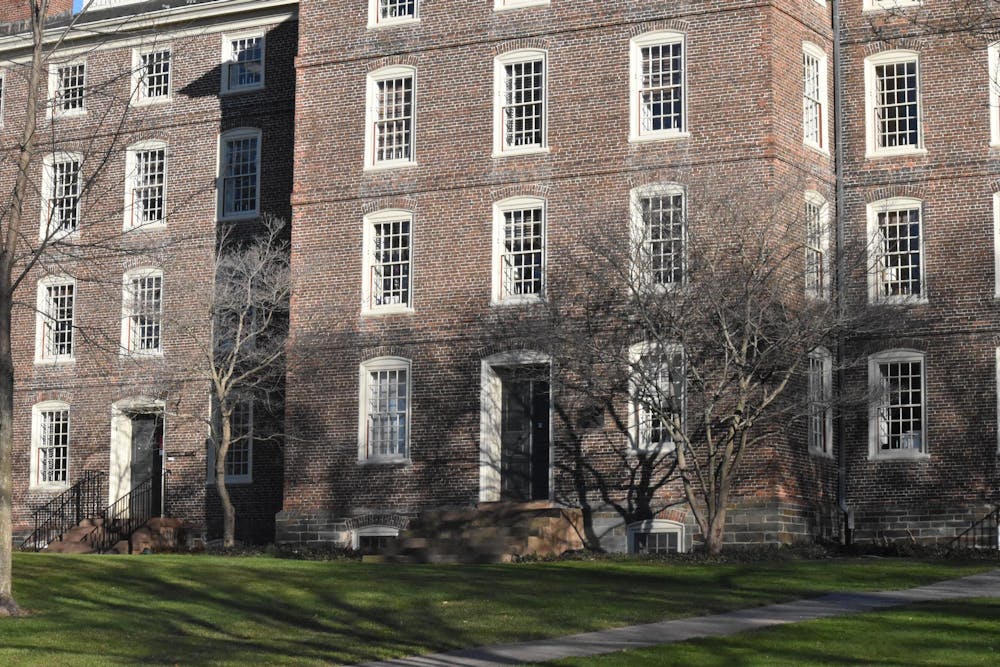The Labor Organization of Community Coordinators is working to translate member demands into a first draft of a contract as organizers gear up for the start of negotiations with the University after winter break.
Organizers plan to draft the contract over winter break and present it to University administrators in early February to kickstart the official bargaining process, according to Alisha Guerrero ’24, a member of LOCC’s bargaining and organizing committee. Community coordinators first announced plans to unionize in a Sept. 29 press release and received voluntary recognition from the University in late October.
“Throughout winter break, we’re just going to be referencing previous contracts from other universities (and) going back and forth with our (union) representative … to make sure that what we’re asking for makes sense and that we’re covering all our bases,” Guerrero said.
According to Guerrero, LOCC hopes to finalize a contract with the University by mid-August so that it can take effect by the start of the 2024-25 academic year.
“We look forward to working together with LOCC when they inform the University they have taken the next preparatory steps,” Eric Estes, vice president for campus life, wrote in an email to The Herald.
Since gaining recognition from the University, LOCC has restructured its organization as it pivots away from its initial emphasis on recruitment. This includes the creation of a social media committee and a bargaining and organizing committee, which will engage in negotiation sessions with University administrators.
According to Guerrero, around 70% of community coordinators are LOCC members. The union experienced steady increases in membership in the weeks following LOCC’s Oct. 3 rally, but growth has since leveled off, she said. Guerrero added that she expects to see an increase in membership after mandatory winter break training for community coordinators.
Over the last few weeks, LOCC has made an effort to gather input from its general members, hosting a Nov. 5 town hall and sending out a survey to union members.
“Our main hope is to be able to get as many CCs’ input as possible, especially as we move into bargaining so that we feel like we’re fairly representing what most of the CC workers would like to see in a new contract,” said Anna Ryu ’25, another member of LOCC’s bargaining and organizing committee.
The union’s bargaining committee has compiled members’ priorities and demands from recent engagement into plain language, which Guerrero said organizers will use to draft the contract. The union has also been reviewing the Teaching Assistant Labor Organization’s interim agreement and contracts for residential assistant unions at other universities, she said.
Additional compensation for community coordinators is “the most tangible thing” that LOCC wants in a future contract, according to Ryu.
At LOCC’s town hall meeting, many students expressed concern that a decision to increase compensation by reducing the total cost of attendance for community coordinators would not benefit students who have all of their costs covered by financial aid, Guerrero said.
Town hall attendees also called for a “distinct job description” for community coordinators who are assigned to halls with first-year students, a formalized grievance process and improved communications from the Office of Residential Life, Guerrero noted.
Throughout the organizing process, LOCC has worked with representatives from GLO, who have provided guidance on navigating the logistical aspects of forming a union and securing legal representation, Guerrero said.
Strong student labor movements on campus have paved a path for LOCC to achieve its goals, Ryu said, referencing TALO’s successful interim contract negotiations, which concluded in August.
“It really makes a difference to have a strong, solid first contract on the first meeting with Brown at the bargaining table,” Ryu said. “It’s definitely something that’s motivating us, and we hope to follow in TALO’s footsteps in that way.”
Looking forward, Ryu said she believes that LOCC’s negotiations with the University will produce better working conditions for community coordinators.
“I hope that down the road … there will be some benefit that comes from this for other CCs taking on this position,” Ryu said.

Ethan Schenker is a university news editor covering staff and student labor. He is from Bethesda, MD, and plans to study International and Public Affairs and Economics. In his free time, he enjoys playing piano and clicking on New York Times notifications.





